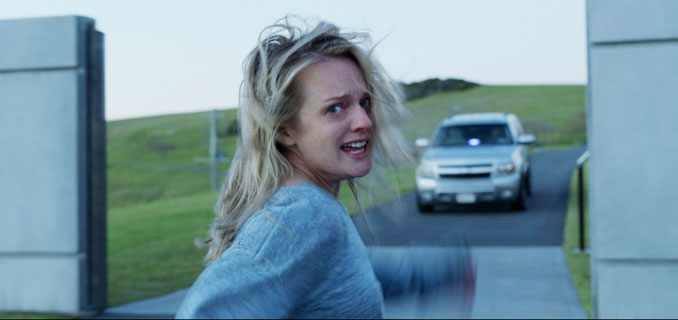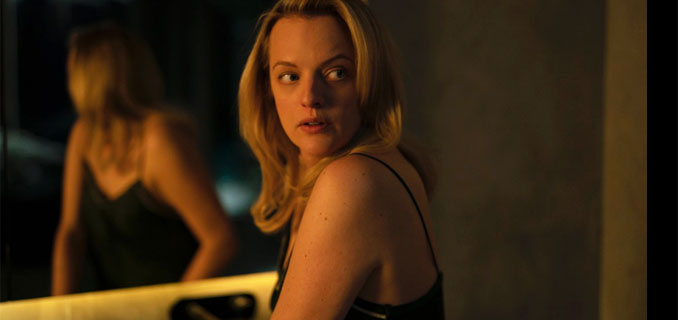
Two movies about troubled women from two talented Australian filmmakers. Both, in very different ways, point to our deeply disturbing times.
Undertow
Australian films hardly ever make much headway at the local box office, and yet the country is literally bursting with talented people putting content out there, hoping against hope their work will be noticed. Some, like the thoroughly contemporary rom-com Hot Mess, which was filmed here in the inner west, head straight for streaming oblivion after their buzzy festival debuts. Others like this stand-out – a moodily gripping drama from writer/director Miranda Nation languish on a shelf despite earning rave reviews at Melbourne’s 2018 Film Festival (and Edinburgh). And then, after finally being released, have trouble finding screens – even in Sydney’s supposed art-house epicentre, the inner west. But Undertow is one not to let slip by, and fortunately, it is getting a run at Randwick Ritz. And (just announced) Palace Norton Street and Central as well. So book mark this link now…

Gloriously filmed around the Victorian city of Geelong and its eye-catching coastline, Undertow’s emotional currents are as turbulent and treacherous as the wild waves that crash onto its southern shores. This is the area the filmmaker grew up in, and she knows its picturesque nooks and crannies well, though like her buttoned-down and fragile protagonist Claire (Laura Gordon), seems more interested in showing us its hidden dark side. Claire, who lives on that coast, is a photographer – grieving over the recent loss of her stillborn baby, but incapable of letting her husband Dan (Rob Collins), a high-ranking AFL publicist, know the depth of her despair. Told by her doctor to “avoid sex for now,” she can’t even communicate that, leading to the usual sort of misunderstandings. After spotting him in a compromising situation with an attractive but reckless teen called Angie (a stunning Olivia Dejonge), she becomes obsessed with the younger girl, stalking her with her camera, even becoming her “friend”. It’s not a healthy relationship, especially after Angie reveals she’s pregnant. And as the ominous soundtrack and Bonnie Elliott’s expressionistic camerawork warn us – it’s not one that will end well for either woman.

At times the melodramatic elements of the story dominate. And with more female nudity than the entire forthcoming French Film Festival (and that’s saying something) – inevitably Undertow risks being called lurid. But the film feels “European” in that respect, and those scenes are relevant and never gratuitous. Before its unsettling psychological thriller thread gets out of control, Nation reigns it all in, takes us back to an early scene, introduces a note of “grabbed from the headlines” topicality (football players behaving atrociously), and then in the final act – turns the film on its head. That leads to wholly satisfying denouement, and a big confession scene that asks Collins to pull off one of the finest underplayed performances I’ve ever seen from an Australian male actor. Undertow is full of nuance and raw emotion, and a welcome relief from the didactic way gender relationships are inevitably portrayed on screen nowadays – heroes, villains, victims – always… But will any of this trio survive these traumatic events? Maybe, the final scene, quite brilliantly low-key, allows just a glimmer of hope. MA15+ Dendy Newtown’s Q&A with the makers of Undertow is on Sat Feb 29 at 7.30pm. Also at Palace Norton St, Central and Randwick Ritz from Mar 5. ★★★★1/2 . View the trailer.
The Invisible Man

It would be ludicrous the criticise a move with a title (and concept) like this as being “implausible”. At least the “science” of invisibility is explained – a suit of cameras, mirrors and high-tech optics – so phew, at least the creepy stalking dude doesn’t also have to be naked. But even accepting that, there’s little in Aussie writer/director Leigh Whannell’s (Upgrade, Insidious: Chapter 3) re-imagining of H.G. Wells’ classic that unfolds as it might in real-life, and that fatally limits the cat-and-mouse-thriller cred the film seems to be aiming for. What happens to abuse victim Cecilia (the perpetually-aggrieved Elisabeth Moss, who seems to be making a career out of being utterly miserable), is beyond absurd. Mind you, we only view her wildly fanciful version of events, that she’s being tormented by someone no one can see, through her eyes. And there’s plenty of clues, with her irrational and jittery behaviour and apparent reliance on Diazepam, a powerful benzodiazepine drug that affects chemicals in the brain – that nothing of this is real at all.
There is another view, one that’s been grabbed by warriors in the gender culture-war battles we’re living through. Cecilia’s invisible tormentor is her supposedly dead husband Adrian (Oliver-Jackson-Cohen in a small role – we literally rarely see him). Apparently he is/was an “optics genius,” and she lived with him in a high-tech fortified concrete-and-glass clifftop castle high on top of a cliff on the spectacular Californian coast. It doesn’t quite have a shark-invested moat to keep her imprisoned, but its walls, high tech security and crashing waves beneath are just as effective. And Adrian, as it turns out, is/was a narcissistic, sadistic, domineering sociopath. Also a tech billionaire. And male. Could there possibly be a more formidable antagonist for our hero Offred?

Like many sexual abuse victims, no one believes Cecilia, and the plot only has roles for a couple of other bros: a seemingly nice but ineffectual cop (Aldis Hodge) who abandons her when she needs him most; Adrian’s slimy and duplicitous brother (NZ actor Michael Dorman); and (in a small but key scene) a potential employer for Cecilia – an “innovative” nerdy architect who works from an ultra-hip Bay Area warehouse. In a casual aside while interviewing, he hits on Cecilia – so see, even the cool dudes are really manipulative creeps. Ever the victim, she respond by fainting. (“Quick, the vapours!”)
There’s zero character development for Adrian, no exposition of his ambitious project (surely the military would be interested!), nor are we given any clues about his motives, or reasons why he’d devote billions of dollars to the torment and domination of a woman he supposedly loves. Either explanation of Cecilia’s condition (mad/innocent victim) could be valid, though I prefer the first, and the final frame focussing on our Offred‘s eyes should convincingly confirm it. But most other reviewers prefer the second, and they’ve got very excited by the idea that the invisible man is really MeToo’s villainous patriarchy, ie. every man. That’s why this ludicrous thriller is sitting at 90% on Rotten Tomatoes…
So thanks for that, Harvey Weinstein. Now rot in hell. MA15+ Local cinemas include Palace Norton Street, Central, Broadway, Burwood and Dendy Newtown ★★1/2 View the trailer.
Reviews – Russell Edwards

